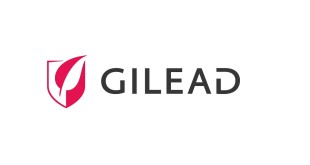I’ve been observing the Valeant train wreck saga from the sidelines these last two months. As a spectator, I find it remarkable –and, as an investor, humbling– on many different levels.
Is Valeant going to be Ackman’s Waterloo? What about the “un-hedged” funds who followed him into the trade? Is Valeant a fraud? Will they survive? What are the 2nd derivative impacts? Apparently the rumor going around today is that Pfizer might be interested in buying them. We’ll see.
I haven’t had any positions –I have no edge here, other than to have realized when the story started developing that deep, two-way risk existed– but my thoughts go out to all the people that have been deeply hurt by this affair.
The ramifications of what likely comes next for the Valeant players brings a story to mind from the days of the .com collapse. This story involves a fellow by the name of Charlie Thomas. Charlie was the CEO of a company called Net2000, who had a collection of data networking businesses. They started in network cabling, installing T1’s for thousand-dollar a month, 1.5Mb internet connections (I now receive 45Mbs from AT&T for $50, talk about deflation!) and reselling network services from Bell Atlantic (now Verizon). Soon, they evolved to building their own data network. As the stock price of anything internet related was going to the moon, they IPO’d. You know the rest. The stock did a moonshot, then collapsed. Investors lost their shirts.
I met Charlie briefly at a mutual friend’s home some years ago, shortly after he had written a book about his Net2000 experience. One of the vivid recollections I have from the book was his retelling of the emotional roller coaster of being immediately made paper-wealthy, and then watching helplessly as it all slipped away, followed by his feelings of depression and regret.
He explained the handcuffs that large shareholders have in terms of selling, hedging and diversifying their concentrated equity holdings. Someone can be worth a billion on paper, but if they can’t sell any stock due to insider restrictions, they might be struggling to make the monthly rent. To address the issue, underwriting banks will offer loans against these holdings, allowing these folks to get access to funds without having to actually sell their stock.
If your mental warning light just went off, good for you. This is nothing more than a loan on margin. And when the stock goes down, as NET2000’s did, the banks call in the loan. If you can’t put up additional collateral, they’ll sell your holdings for you, often at the worst possible time. (Aubrey McClendon of Chesapeake made this a relatively common occurrence. Most boards do not allow the practice. When a board does, it often can be an indicator of poor corporate controls.)
On Thursday, the fine people at Goldman Sachs called in a $100M loan to Mike Pearson, CEO (at least as of today) of Valeant. 1.3M shares, or about 10% of his total holdings, were bid at the ask, and helped contribute to yesterday’s 14% fall in VRX. Mr. Pearson, based on his 10.1M shares, has lost about $1.9B in the last two months, about 70% of his net worth, assuming all of his wealth is tied up in Valeant.
Pearson’s remaining shares are still worth about $830M, but 70% is a tough drawdown, I don’t care how much you have left. And it’s not clear how much of that he’ll get to bank, or how much his life as he knew it is about to change. There may be other shareholders or who are experiencing these calls and darkened futures as well.
I don’t know if Valeant is involved in fraud. Their formal business model, as they presented it, seemed morally questionable, but legal. The Philidor business, however, appears unsavory on every level. The probabilities suggest that something bad happened, and someone is likely going to be in a great deal of trouble.
On their last corporate earnings call, Valeant radically changed their business model. They will now embrace the inefficient R&D they used to be against, they’re going to stop rolling up companies with debt. This reversal means even if they escape the current federal investigations unscathed, Valeant is unlikely to be worth anything near what Ackman thinks thought it was a few months ago, when he presented it as the next Berkshire Hathaway. And unlike what Citron claims, it’s possible, but highly improbable that the shares will be going to zero. All of this will get resolved eventually — including what Pearson knew and how much he or other Valeant officers were involved in any wrong doing, if any. It will all come out.
We haven’t heard much from Pearson, and that is not helping his public image. But the probability exists the guy is completely overwhelmed, and not at all equipped to now reap the whirlwind he may, or may not have personally sown.
I have two immediate reactions from all this.
When I read about Goldman’s margin call, it made me think about the magnitude of what Pearson has been carrying the last few weeks. Innocent or guilty of wrong doing, the most likely path forward is he’ll soon lose his job. Worst case, he may possibly lose a huge portion of what he’s worked so hard his entire life to attain. If the latter occurs, he’s in for one of the toughest emotional tests life can throw at person. It’s one thing to have never had great wealth. It’s another thing entirely to have lost it all. If the worst happens over the next few years, Mike Pearson is going to learn an awful lot about who he really is, who his real friends are, and what really matters in life. It’s hard not to feel something on a deep level for a person that’s staring into that existential abyss, I don’t care what they’ve done.
What I recall most from the book Charlie Thomas wrote, was my impression of his sincere regret. Not for himself, but for the traumatic experience his investors and shareholders went through. Net2000 wasn’t a fraud, and let’s be clear we still don’t know what Valeant is, or what Pearson’s feelings are, but Charlie felt he had let everyone down. I wasn’t a shareholder in NET2000, but I’ve lost big money in other companies on more than one occasion, and Charlie’s sentiment meant something to me. I empathize with the personal guilt he clearly carried and the responsibility he felt for those that had been hurt by something he was personally involved in.
Human beings make bad decisions, that’s who we are. When we –flawed to the core, each and every one of us– can feel regret and seek forgiveness for mistakes we’ve made that have hurt others; and from the flip side, when we who have been hurt –perhaps seriously– can empathize with, and forgive those who are now dealing with the consequences of their decisions; well, from my perch it’s this two-way interaction that represents the very best of what we are as a species.
That we are capable of regret, empathy and forgiveness gives me hope that –much like we navigated the last 100 years of financial turmoil, nuclear threats and world wars– we’re going to successfully thread the needle of the next 50 years, despite the momentous change that may lie just ahead. Markets and people do adapt.
Just like Mike Pearson and Valeant, and quite possibly Elizabeth Holmes and Theranos, Charley Thomas’ net worth in NET2000 took a terrible hit, along with that of his investors and shareholders. Googling Charlie today, 15 years later, however, he appears to have very much recovered from what has to be one of the darker periods of his life. I’m glad. I also hope that Pearson and others neck deep in the Valeant nightmare can focus longterm, even as they go through the painful sausage grinder that’s immediately ahead.
There is a light at the end of the tunnel, and although it looks like it may be a freight train now, in 15 years, you may look back with a different perspective. Accept that things as you know them today are likely going to change, and may never go back to the way they were — but you can recover. And it may just turn out that where you end up is a far better place then the path on which you were headed.
My second takeaway is risk management truly matters.
There is a reason many of the great investors list their most important rule as “don’t ever lose money.” Shallow risk is your average volatility. Stocks go up, stocks go down. Odds are, the price and your money are mostly coming back.
Like I said, we don’t know if fraud occurred at Valeant. Regardless, investors have lost 70% in two months. Events like Valeant, Theranos, Madoff, Enron, and Worldcom are truly terrifying. Along with political instability, bankruptcy, war and hyperinflation, fraud and margin represent deep risk, as in “there is no possibility of your capital ever returning, it is gone.” Far, far more intelligent and sophisticated investors than I were caught in Valeant. Hopefully, they know what they’re doing when they make the decision to concentrate further in the position.
I run a concentrated portfolio myself, and if I want to survive over the long term, risk management has to be more than a daily aphorism. So when a drawdown on the scale of a Valeant occurs, with accusations of fraud being floated, I start thinking about each of my holdings, and what I need to do manage risk; constantly questioning the validity of a thesis, monitoring for change, position sizing, margin, dollar cost averaging, cutting bait. These are far easier to speak of than they are to effectively do, but an investor’s survival hangs in the balance. For the individual investor, managing risk is “the most important thing.”
I found that writing about these complicated topics was rather difficult to do…hopefully, it reads like it was intended.
Have a good weekend, we’ll talk more soon.
-g
If you enjoy the content at iBankCoin, please follow us on Twitter






Great read!
Thanks much UB, happy weekend.
Great stuff. Thanks for sharing your thoughts in such a lucid manner.
That was a very interesting take on the situation. Thanks for sharing…you put a lot in to your posts.
As a very recent owner of VRX there is nobody to blame but myself. After resisting this stock for years I decided to finally buy it the day before the Citron report at $192 CDN. They had already announced decent earnings and I saw one of the Top analysts on BNN (Canadian eh) pound the table. Looked like a great chance for a quick 10 -20 %! It sounds pretty crazy that a small guy can take down what was once the biggest CDN company by market cap but VRX does not seem to have any proper response.
Ah well. Down only 35% but it could be worse. I could be Mike Pearson. It would be enough to put a man on the serious liquor.
DD, I was looking at it myself at the same time you were, and came across the SIRF report (via $VRX search on Twitter) which preceded Citron’s by 2-3 days.
I came close to shorting it in size at 190, 165 and 130.
Didn’t pull the trigger due to a lack of conviction. Didn’t know who SIRF was at the time and there was no easy way to verify their Philidor story. That Ackman (!!) and so many other big hedgie’s were adding left me thinking I was the dumb money.
(What’s the quote from Rounders? If you can’t spot the sucker in your first half hour at the table, then you ARE the sucker?)
Yeah, well, call me the sucker because I still don’t know which direction this thing is ultimately headed. (Although my gut says when there’s this much smoke, the stream of bad news probably isn’t over. Regardless, up or down, it’s unlikely to stay where it’s at for too long…)
Keep an eye on cash flow. If any part of the $3b gets restated, then longs are going to exit. I bring this up because they claimed $300-400m that came from Pershing’s bet on Allergan shares (it was VRX’s money) as operating cash flows.
http://ftalphaville.ft.com/2015/11/06/2144336/what-counts-as-operating-cash-flow-at-valeant/
That’s a 1-time event and the accounting doesn’t smell right. If cash flows aren’t $3b, then debt leverage ratios are understated. This introduces deep risk scenario, the increasing probability of a high-leverage, credit-induced collapse…
Nobody long wants any part of that. Doubling down like some of these guys are doing is why I wrote on the Martingale. Thorp studied when it was okay to DCA and when to fold, this doesn’t look like the former. Ackman is playing a dangerous game here.
My thought would be to create a shopping list for all the things you like in the rest of the still-long hedge funds’ portfolios. (These would be their other positions they’re going to have to fire sell if there’s a margin call associated with a catastrophic decline in VRX.) Place deep oom limit buy orders on Mondelez or PAH for example, 30-50% beneath where they’re currently trading.
Good luck.
g
Another great post
GrayStoke,
Very thoughtful post. I like your style. Please continue to share.
Gray, a wonderful and thoughtful post, regarding the “aftermath” scenario on an intimate personal scale and relating it back to us and why this is relevant. Nicely done.
Bravo.
Great article and very important.
Readers should print out and save…